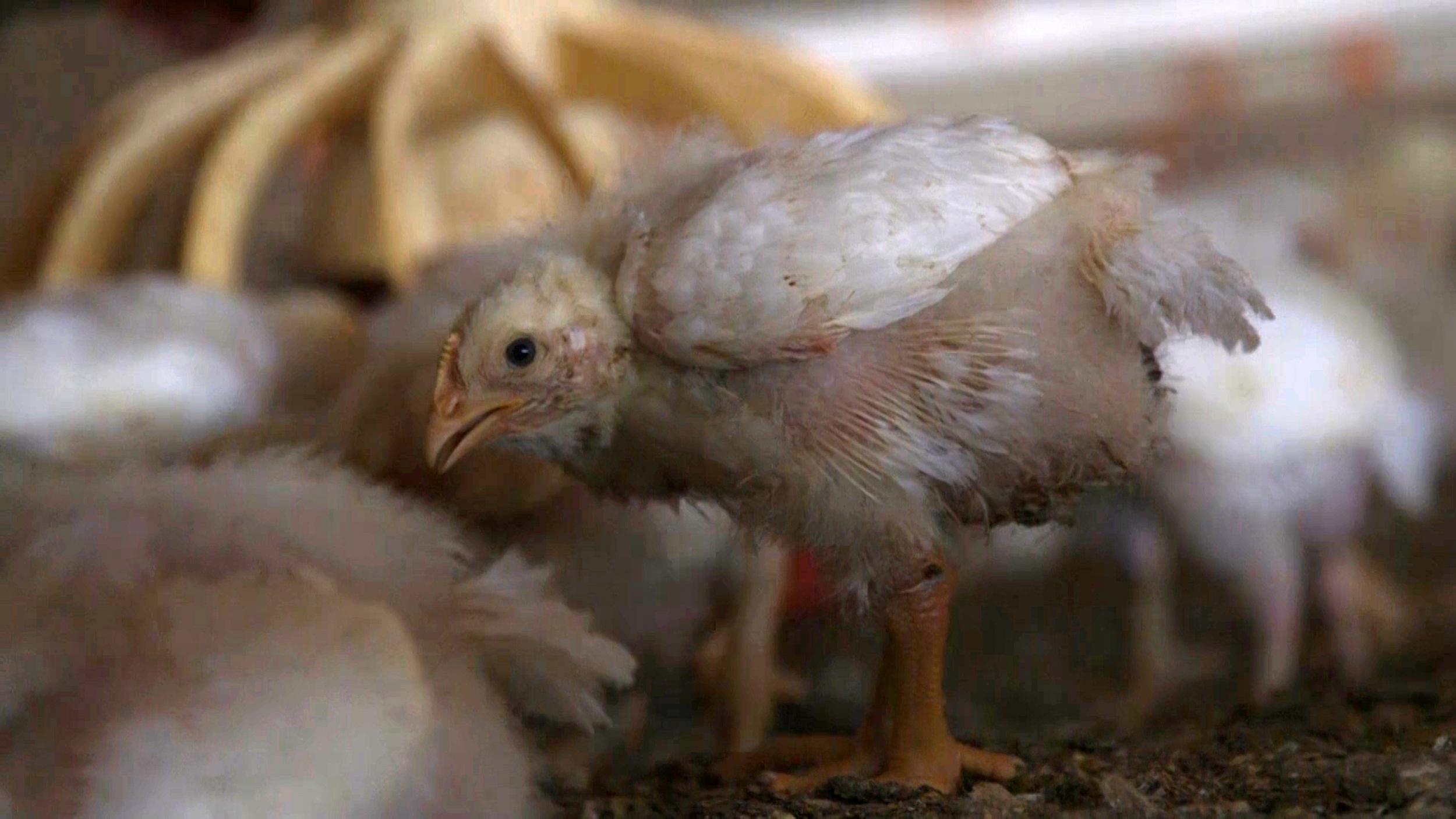Nando’s, Domino’s Pizza and McDonald’s among fast food giants forcing misery and pain on billions of chickens, global study says
World’s nine biggest chains – including KFC, Burger King, Pizza Hut, Starbucks and Subway – rated ‘poor’ or ‘failing’ on welfare of birds
Your support helps us to tell the story
From reproductive rights to climate change to Big Tech, The Independent is on the ground when the story is developing. Whether it's investigating the financials of Elon Musk's pro-Trump PAC or producing our latest documentary, 'The A Word', which shines a light on the American women fighting for reproductive rights, we know how important it is to parse out the facts from the messaging.
At such a critical moment in US history, we need reporters on the ground. Your donation allows us to keep sending journalists to speak to both sides of the story.
The Independent is trusted by Americans across the entire political spectrum. And unlike many other quality news outlets, we choose not to lock Americans out of our reporting and analysis with paywalls. We believe quality journalism should be available to everyone, paid for by those who can afford it.
Your support makes all the difference.KFC, McDonald’s, Nando’s and Domino’s Pizza are subjecting billions of chickens to lives of misery that end in a painful death, according to what is thought to be the first global investigation of its type.
The world’s nine biggest chains – also including Burger King, Pizza Hut, Starbucks and Subway – have, following the investigation, been rated “poor” or “failing” on chicken welfare, and accused of putting birds through “chronic pain” in “brutal” industrial-scale systems hidden from the consumer.
World Animal Protection (WAP)’s report found “an almost-universal disregard among the brands … for improving the treatment of chickens throughout their global supply chains”.
The fast-food brands say they adhere to Red Tractor standards or their own animal welfare guidelines, or exceed minimum legal standards.
About 40 billion meat chickens – or broilers – are raised each year in factory farms, living in pain and suffering lameness, skin lesions and even heart failure, the report claims.
Two-thirds are genetically selected to develop so fast their legs cannot bear their weight, and are raised in barren, dark warehouses that curb their instinctive behaviour, the report says.
It identifies six common problems: being bred to grow too quickly; overcrowding; cages that severely restrict movement; alien, unhealthy environments; unnatural lighting, and often “squalid” conditions.
No company was graded higher than “poor” in the report. Domino’s was judged “failing”.
KFC, Nando’s, Pizza Hut and McDonald’s were rated “very poor”.
In most areas companies do not even guarantee humane slaughter
Three of the nine – Burger King, Starbucks and Subway – had policies to address the problems but in only one region or country, while none had a global policy on improving chicken welfare, the report said.
Transparency was “universally poor, with all companies providing little or no information to show how they are performing when it comes to chicken welfare”, it added.
“Notable exceptions [on welfare] occur in some regions,” the document says. “For example, in the UK, natural light and enrichment are being introduced by a few companies.

“However, in most areas where they operate, companies do not even guarantee a humane slaughter for the chickens used in their businesses.”
Three months ago, WAP handed KFC a petition signed by 500,000 people in at least 10 countries urging the company to give its chickens better lives.
Jonty Whittleton, of WAP, said: “There is no excuse for the pain, fear and stress that a factory farmed chicken feels for much of their life. Billions of chickens never get the chance to see sunlight, to grow at a natural rate or behave as they would do in the wild.
“These iconic companies must respond to growing consumer concerns over chicken cruelty.”
The Change for Chickens campaign is calling on the fast food industry to source birds from higher-welfare farms, avoid use of live shackling and ensure they are unconscious when slaughtered.
A Nando’s spokesman said: “Nando’s never uses caged chickens anywhere in its global supply chain. All our chickens are reared in deep-littered, well-ventilated barns. In the UK, all our chickens are barn-reared to Red Tractor standards. Our internal technical teams undertake regular visits to all our suppliers across the world.”
A spokesperson for KFC globally said: “KFC is committed to the wellbeing and humane treatment of chickens. We are proud of our responsible, industry-leading animal welfare guidelines and have a longstanding commitment to improving farm animal welfare through our multi-stakeholder Animal Welfare Advisory Council and our global animal welfare policy.”
A KFC UK spokesperson added: “We’re proud that World Animal Protection has recognised the progress made in Western Europe and of the strong working relationship we’ve fostered with them.”
Subway said: “We work closely with suppliers to ensure animals are treated well in accordance with our global animal welfare policy. Globally we support the principles of the Farm Animal Welfare Council Five Freedoms. We are working with Compassion in World Farming in Europe and the USA. All our chicken suppliers source from independently verified farm-assured schemes which go above the minimum requirements of legislation. In the UK this includes rearing chickens at a much lower stocking density. In Europe cages are never used.”
A Pizza Hut spokesperson said: “As a business, we have animal welfare policies in place and we are talking to World Animal Protection to understand how they reached their conclusions.”
Domino’s said it would comment soon on the findings, and McDonald’s said it would comment, but did not do so before publication.
Starbucks and Burger King were approached for comment but did not respond.

Join our commenting forum
Join thought-provoking conversations, follow other Independent readers and see their replies
Comments